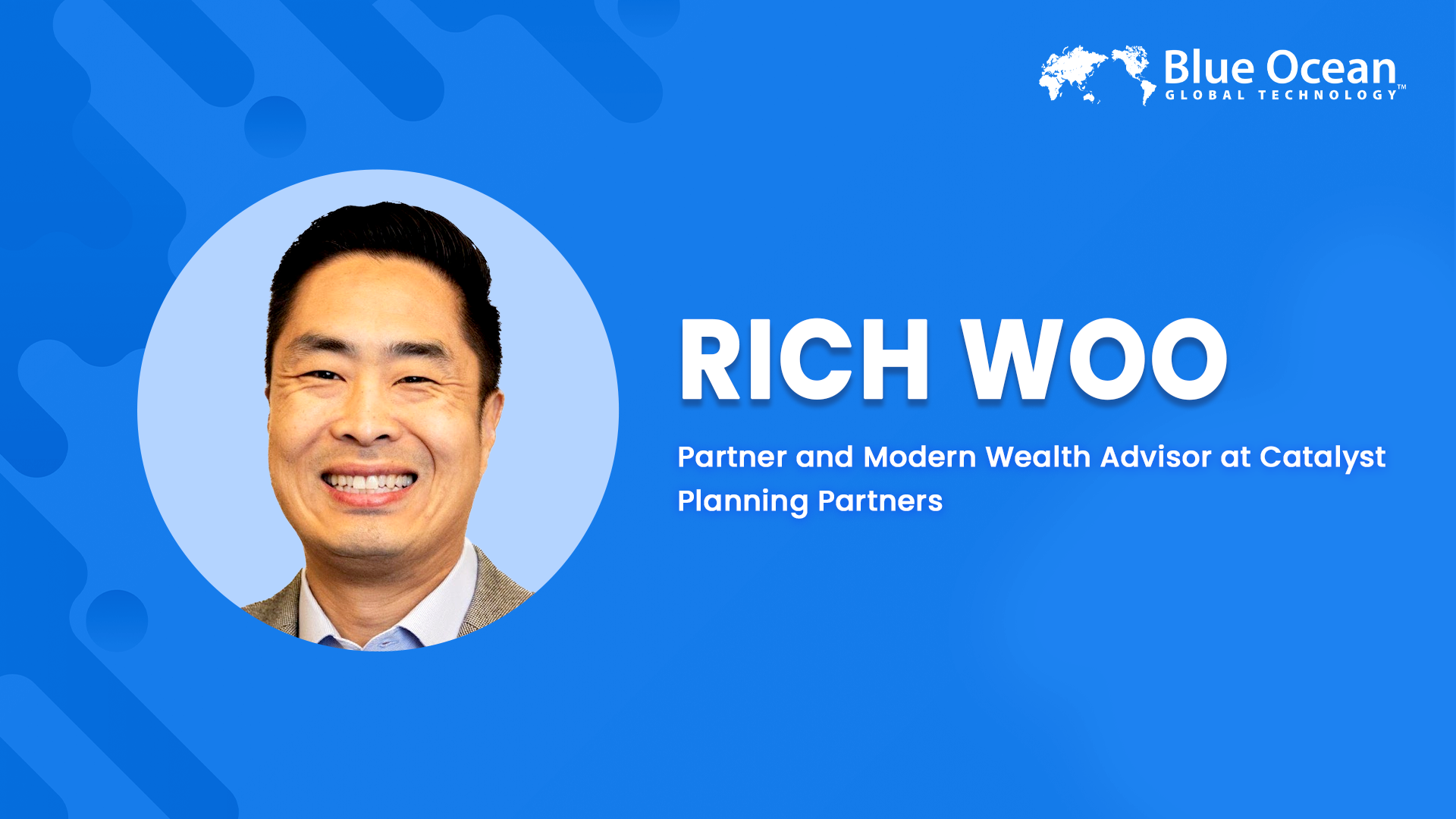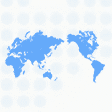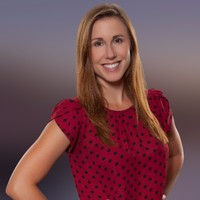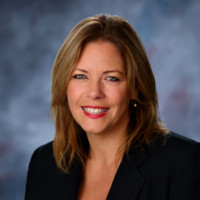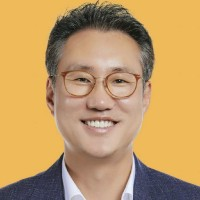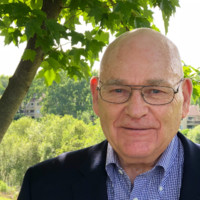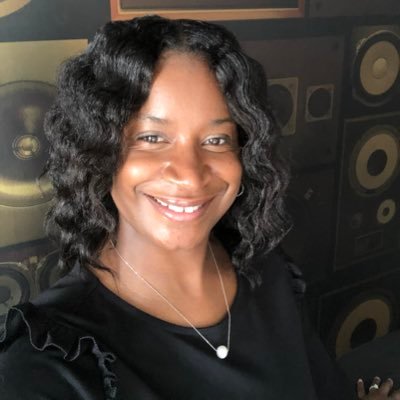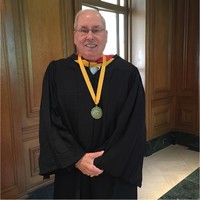About Rich Woo
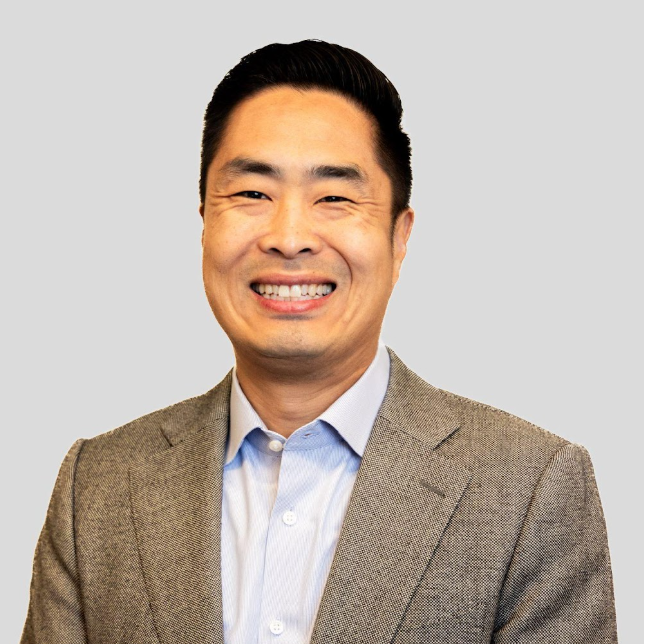
Rich Woo’s journey is defined by resilience and the power of family. Born to immigrant parents in the early 1980s, Rich grew up in the suburbs of Chicago, where he experienced both modest beginnings and immense love. At 15, the tragic loss of his mother reshaped his life, with his father making immense sacrifices to raise him and his younger brother.
After college, Rich found his true calling as a financial advisor, despite early struggles and constant rejection. He worked tirelessly, putting in over 80 hours a week, and faced overwhelming challenges. Fast forward to today, Rich and his team manages nearly $1B in assets under management and has built a thriving practice, now helping others realize their dreams and avoid the pitfalls he once faced.
Now focused on faith, family, and helping others reach their potential, Rich enjoys spending time with his wife and three children, traveling, golfing, and serving his clients. His story is one of perseverance, and he invites you to connect and share in his journey.
Blue Ocean: Tell us about your professional journey. What inspired you to pursue this career, and what continues to fuel your passion for the profession today?
Rich Woo: When I began my career as a financial advisor, my goals were clear: build a stable future and support my family. Losing my mom in high school left me with a strong sense of responsibility to provide for my dad and younger brother, and to create some security for us all. That early drive helped shape my definition of success. Over time, as I’ve grown both personally and professionally, that definition has evolved into something deeper and more purpose-driven.
Today, my mission is to love and serve God, family, friends, clients, and even future generations I may never meet. That mindset fuels my work, from writing The Relationship Recession to starting the Power of Connections Podcast and hosting Jeffersonian Dinners centered on real, honest conversations. I see my clients not as numbers, but as human beings with legacies. Whether I’m guiding someone through financial decisions or engaging in community conversations, my focus is on helping people reconnect with what truly matters – their relationships, purpose, and impact. That’s what gives my work meaning, and that’s what gets me out of bed every morning.
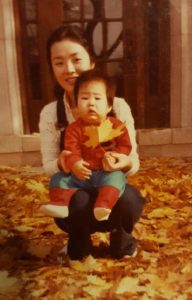
Blue Ocean: What does a typical day look like for you as a financial advisor?
Rich Woo: A typical day as a financial advisor with three kids under five starts early. I’m usually up around six, helping get the kids ready. We’re out the door by 7:30 a.m., dropping them off, and then I head into the office. I’ll try to squeeze in a quick workout either in the morning or in the afternoon, and then my day really begins.
My day usually consists of one of three things: advising clients, handling internal operations, or mentoring our 13-person team. From about 8 a.m. to 4 p.m. with a 15-minute lunch break in between, I’m moving through those types of meetings back-to-back. At 4 p.m., I have an alarm on my phone that goes off and says “You only have a short window of time with your kids, make the most of it,” because I know this phase of life – when my kids are little and constantly want to hang out with me – is short. It’s a reminder that no matter how tired I am, it’s time to shift into dad mode. I can be tired 20 years from now, but not today. So I head home, play with the kids, eat an early dinner, get them washed up, and by 7:30 p.m., it’s bedtime. We brush our teeth, read a book, say a little prayer, and I tuck them in. Hopefully, they’re asleep by 8:30. Then I get a bit of quiet time, spend some time with my wife, and before we know it, it’s time to sleep and get ready to do it all again.
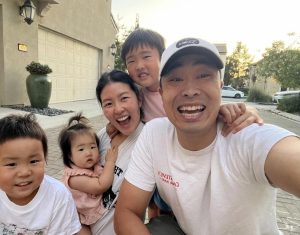
Blue Ocean: Which emerging trends in your profession most excite you?
Rich Woo: One of the most exciting trends in our industry right now is AI. While some people are afraid of it, worried it’ll take over their jobs or strip creativity from the work, I see it differently. The world has always evolved. Jobs disappear, new ones emerge. What excites me is how AI can improve the way we work. For example, tasks that used to take hours of digging through Google can now be done in a fraction of the time. It’s not about replacing human thinking, it’s about enhancing it. You still have to verify the sources and ensure the work holds up, but AI can save 70 to 80% of the effort in the research phase alone.
In financial advising and wealth management, that’s a game-changer. Used responsibly, AI can free up more time for the work that really matters, such as having meaningful human-centered conversations and long-term strategy with clients. Of course, compliance and ethics remain critical. Everything still has to align with industry standards. But I believe those who learn to integrate AI thoughtfully and responsibly into their workflows will have a major edge. It’s not something to fear; it’s something to embrace and leverage wisely.
Blue Ocean: Can you walk us through a particularly complex client situation you’ve handled and how you guided them through it?
Rich Woo: I worked with an executive client who had a significant liquidity event from selling his business. He was in his late 30s, married with one child, and faced the decision of how much of that capital to use for personal expenses versus investing for retirement to potentially retire earlier. We created multiple scenarios for him, centered around both long and short-term options. The challenge was helping him balance the desire for immediate enjoyment, like buying a second home or traveling, with the long-term benefits of securing greater financial independence sooner. There were many moving parts, including tax implications, which we addressed by structuring his investments in a tax-efficient manner. We also ensured a diversified portfolio with the right mix of public and private investments. This experience highlighted the importance of building strong relationships with clients.
In this industry, certain things go without saying: you need to be knowledgeable, trustworthy, experienced, and backed by a strong team. Those are the baseline expectations for being a solid financial advisor. But beyond that, what truly sets you apart is your ability to build real, lasting relationships. People refer others to professionals they genuinely trust and enjoy working with. That kind of trust isn’t built through emails or quick forms, but built over time through consistent, meaningful interactions.
Relationships matter. To truly serve someone well, you need to understand more than just their financial situation. You have to know their story, their pain points, their goals, and their passions. The deeper that relationship goes, the more value you can bring, and the more likely it is that you’ll become a long-term, trusted partner. Strong relationships not only lead to better outcomes for the client, but they also make the work more fulfilling and sustainable in the long run.
Blue Ocean: What core values or principles do you believe every great professional should uphold, regardless of their practice area?
Rich Woo: At the heart of our firm are three core values: REI, which stands for relationships, excellence, and integrity. We believe that behind every name is a real person, someone deserving of dignity and care. That principle applies not just to our clients, but to our team first. If we invest in our people, support and train them well, they, in turn, will care for our clients in the best possible way. Relationships aren’t transactional for us, they’re foundational. We treat our clients and colleagues with the same level of attention and respect, always striving to understand and serve them as whole people, beyond their roles.
Excellence, to us, isn’t about rewards or recognition; it’s about who you are when no one’s watching. One of the best examples of this is a teammate, Jennifer McGowan, who joined us later in her career. With decades of experience she continues to go above and beyond. She’s first to arrive, last to leave, and always thinking a step ahead. She doesn’t do it for praise; she does it because it’s who she is. That kind of commitment ties directly to integrity: showing up consistently, being honest, and holding yourself to a high standard, whether or not anyone else is looking. Integrity is being accountable, and that’s a mindset we live by every day.

Blue Ocean: What are some common misconceptions people have about your field of work?
Rich Woo: There’s a big misconception that financial advisors are just here to manage your money or give you an investment strategy. That’s part of it, but a good advisor does much more. We don’t just manage portfolios, we help manage behavior and help clients achieve important goals and outcomes. Studies have shown that over the long term, individual investors tend to underperform the market. It’s not because they’re not intelligent, but because of emotional decision-making. When markets drop, fear kicks in. Even people who know they should stay the course often end up selling. It’s human nature. Just like a personal trainer helps you stay committed to your health goals, a financial advisor helps you stick to the plan when things get tough.
Beyond investments, real financial planning is about building a framework that supports your actual life goals: saving for your kids’ education, retiring comfortably, caring for your aging parents, and protecting your loved ones if something happens to you. A portfolio without a plan is like having a gym membership with no workout routine. It’s about being intentional. You can’t fix your health with one green juice a day, or sustain a relationship with a monthly text. And you can’t build lasting financial security by just investing without a clear strategy. It takes consistency, clarity, and the right guidance to make it all work.
Blue Ocean: What is something unique you offer to your clients, especially when advising them through major financial decisions or life transitions?
Rich Woo: At Catalyst Planning Partners, we work with many executives and entrepreneurs who are building something meaningful, whether it’s a business, a product, or a personal goal. At our core, we see ourselves as the “catalyst,” the agent that helps accelerate transformation. That means we don’t just offer financial planning; we actively look for ways to connect our clients with people, ideas, and opportunities that move their vision forward. From hosting Jeffersonian dinners to making thoughtful introductions, we’re intentional about building real community. In a world where genuine connection is increasingly rare, we create space for collaboration, conversation, and growth. Whether someone finds a new business partner, hires a key team member, or forms a new friendship, we see those moments as just as valuable as any investment strategy.
Another area where we add value is through a deep focus on tax strategy, which is something many clients overlook. Most people think about income taxes, but often forget about capital gains and estate taxes, which can quietly erode wealth over time. We use smart, underutilized tools like direct indexing and donor-advised funds to help clients protect and preserve what they’ve built.
One of my mentors once said the greatest return on your portfolio doesn’t come from the market, it comes from how well you manage taxes. That’s a principle we take seriously and build into every plan we create.
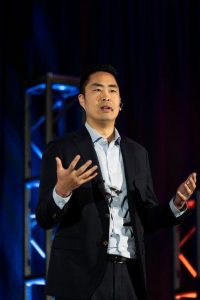
Blue Ocean: How do you maintain perspective and resilience when guiding clients through stressful or uncertain times?
Rich Woo: Resilience and perspective, especially during uncertain times, start with stepping back from the noise. The news is often designed to provoke fear because that’s what drives clicks. While some headlines are genuinely concerning, constant exposure can cloud your ability to think clearly. That’s why I make it a point to unplug periodically. I try to avoid the doom-scroll cycle so I can stay centered, focused, and ready to solve problems. Creating that mental space helps me show up with clarity for my work, my team, and my clients.
In many ways, guiding clients through uncertainty is a lot like parenting. As a dad to three young kids, I’ve learned the value of emotional regulation. Before reacting, you breathe, pause, and re-center. It’s the same during market volatility. We try to be proactive by educating clients early on that swings are normal and that the plan doesn’t have to change just because the market does. I’ll often walk them through historical data, like how the 2008 crash recovered dramatically within just a few years, to show that staying calm and steady usually pays off.
Even with preparation, fear can still creep in. When clients are anxious, it’s important to let them voice their concerns, then gently bring the conversation back to the plan. This is where staying grounded really matters—when I’m calm, they’re more likely to stay calm too. It’s not a one-time conversation; it’s a long-term process of trust and growth. My role is to be a steady guide to remind them that we’ve planned for this, we’ve seen it before, and they’re not alone in facing whatever comes next.
Blue Ocean: What advice would you offer to aspiring professionals entering the profession today?
Rich Woo: For anyone entering the profession today, my first piece of advice is simple: do what you say you’re going to do. It sounds basic, but it’s shockingly rare. Every day, people make small promises like “I’ll text you that link,” “I’ll pay you back,” “I’ve got you next time” and then don’t follow through. When you consistently follow up and follow through, you stand out. People notice. It builds trust and signals reliability. In a world where that’s increasingly uncommon, simply being someone who does what they say already puts you ahead.
The second piece of advice is this: look for pain points and solve them before you’re asked. Whether you work for a boss, a client, or on a team, if you can identify a problem and take it off someone’s plate unprompted, you’ll become indispensable. It doesn’t have to be anything big. It might be as small as helping automate a repetitive task or filtering emails. But if you do that consistently, 30 or 40 times a year, year after year, you’ll go farther than most. Most people wait to be told what to do. The few who anticipate needs and take action without being asked? Those are the ones who truly stand out.
Blue Ocean: What hobbies or interests do you enjoy outside of work?
Rich Woo: I’ve always been a curious person, someone who loves learning and diving into new experiences. A friend from high school said that about me recently when we reconnected after 20 years, and it still rings true. Whether it’s travel, trying new foods, improv, or just picking up random skills, I enjoy the process of discovering and doing. These days, that curiosity mostly shows up in time spent with my kids, like exploring new parks, teaching them little life skills, or turning everyday tasks into shared adventures. Just the other day, I taught my five-year-old how to wax our wooden front door. Neither of us had done it before, so we looked it up and figured it out together. It’s those moments—teaching, learning, laughing—that make ordinary tasks feel meaningful.
Outside of family time, I enjoy playing golf. It’s a game of discipline and focus, and I love being out in nature. I also read a lot, both full books and summaries, across a wide range of topics. And I’m active in my church community, which helps keep me grounded. Between family, faith, golf, reading, and a bit of trial-and-error home maintenance, there’s never a dull moment. If anything, the challenge is just finding enough hours in the day.
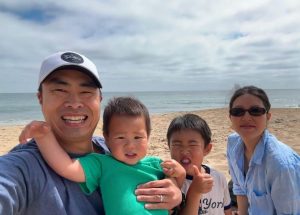
Blue Ocean: Is there a guiding principle, philosophy, or quote that has significantly influenced your career and life?
Rich Woo: A quote that’s had a lasting impact on me is from Aristotle: “We are what we repeatedly do. Therefore, excellence is not an act but a habit.” That idea has shaped how I think about discipline and consistency, not just in my career, but in life as a whole. Two books that really brought this concept to life for me are Atomic Habits by James Clear and The Power of Habit by Charles Duhigg. They both emphasize that success doesn’t come from motivation alone, but from the systems and routines we build into our daily lives.
I think about habits a lot, how they’re formed, how they’re broken, and how they shape who we become. We like to believe we’ll rise to our goals, but more often, we fall back on our systems. It’s the small, repeated actions that move the needle over time. Individual wins may come and go, but our habits determine the long-term trajectory of our work, our relationships, and ultimately, our character. That’s something I reflect on often and try to build my life around.
Conclusion
Rich Woo’s story is a powerful reminder that success is not just measured in numbers but in the depth of our relationships and the integrity we bring to our work. From overcoming personal tragedy to building a mission-driven financial practice, Rich embodies resilience, excellence, and service. Whether he’s guiding clients through complex decisions or creating spaces for authentic community, he continues to redefine what it means to build true wealth. Through his book, podcast, and everyday actions, Rich challenges us to focus on what truly matters and to live and lead with purpose.
Do you have a personal or professional story that can inspire other people into becoming the best version of themselves?
You are welcome to share your journey with our audience.

